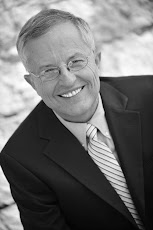I often find denominational elections a frustrating game of passive-aggressive lingo.
When they ruled during the 1960s and 1970s, Southern Baptist moderates honed the lingo into an amazingly beautiful Southern waltz. No one ever "ran" for election to one of the Southern Baptist Convention's top elected posts. Instead, their friends orchestrated their campaigns for them.
I could write the announcement for these moderate candidates before their news releases ever appeared on my desk: "My dear friend, Brother so-and-so, has asked me to allow him to nominate me for president (or first or second vice president) of the Southern Baptist Convention," the candidate would say. "After much prayer, I've decided to allow Brother so-and-so to do this."
These words seemed so sanctimonious except for one fact: they seldom matched the reality of what was occurring behind the scenes. Sometimes rumors had circulated wildly for years that the candidate himself had been behind the scenes twisting arms like crazy to build the resume and reputation and network that would propel him into one of those top jobs.
Southern Baptists moderates weren't the only ones who had this skill down to a well-choreographed script. One of my all-time favorite books is Charles Merrill Smith's How to be a Bishop Without Being Religious. A Christian bestseller in the 1960s, the book was a spoof on Methodist elections of bishops based more on images created by clothes (dark colors and loosely fitting), cars (small with dark colors and very non-sporty and traditional), and wives (neither shapely nor beautiful) than on faith in God and spiritual gifts. Smith paints the picture of clergy leadership more prone to testing the wind direction than on commitment and dedication to theological principles.
Other Christian groups also played similar silly games. I could always spot the "comer" among Roman Catholic priests. A dead giveaway was always in the way he spoke of and courted "THE Holy Father" (the pope). This signaled to the Curia (the church's bureaucracy) that he was a "team" player.
Now that Southern Baptist conservatives are returning to an era of multiple candidates for the convention presidency--after far too long rallying around only one candidate who was allowed to run at a time--they appear to be falling into the same trap their moderate forebears fell into: "Brother so-and-so has asked me to allow him . . . ."
Listen next week during the Southern Baptist Convention in Indianapolis, IN, for these semantic word games.
I personally wouldn't vote for a single candidate for any church office who tried to act as if he is being forced into the race because of friends or even because of The Big Friend Himself. I much prefer open and honest communication and politics in which people say what they mean and mean what they say about their intentions for church leadership posts.






No comments:
Post a Comment